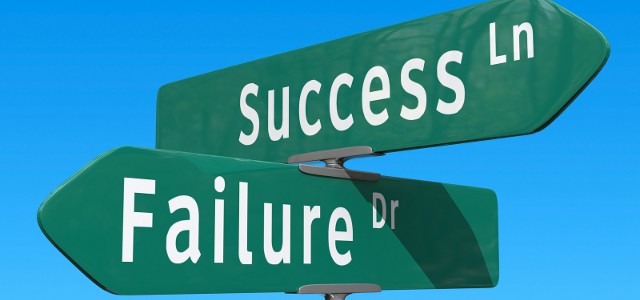In her recent paper published by the Heinrich Boell Foundation, energy expert Susanne Fratzscher, identifies seven transformative trends that utilities in the US and Germany will have to face in the coming years. Susanne goes on to outline models that will likely help this transatlantic utility transformation to succeed. Here is a summary of her findings.

Utilities need to embrace the decentralisation and decarbonisation of energy if they do not want to risk becoming obsolete. (Photo by StockMonkeys.com, CC BY 2.0)
Utilities are among the most affected by the energy transitions in Germany and the United States. The interaction between a growing number of transformative trends in technology, policy and market dynamics drives this transatlantic – if not global phenomenon – which is likely to accelerate further over the next few years.
Utilities that embrace change will have a future in a more decentralized and low-carbon economy. This change, however, needs to happen proactively. As a US industry expert recently put it: “Things in this industry change very slowly and then they change very fast. We are pivoting toward that fast change right now.” The convergence of more decentralized energy resources on the supply and demand side, of more system flexibility and intelligence, and of more engaged and demanding consumers will require utilities to deeply change their structure and mindset. The creation and adoption of more distributed and integrative business models on the generation and distribution side and of more service- and customer-oriented approaches on the retail sales side will be needed. Promising examples exist on both sides of the Atlantic.
The German Energiewende has fundamentally changed the old operating environment of the Big 4 utilities. Their strategic response will likely prove important precedents on how new and more innovative approaches to business can evolve. Two key lessons for utilities can be drawn from Germany’s case: (1.) proactively embrace distributed energy from an early stage, and (2.) foster a decentralized structure and culture oriented on customers’ needs. Germany’s regional utility service companies, such as MVV Energie, mainova and SWM, show that their size and strong focus on customer proximity can provide advantages over other types of utilities. Network strategies with like-minded utilities in a regional context or as purchase aggregation can help to handle an increasingly complex energy system.
Furthermore, partnerships with innovative service providers in the fields of data analytics, energy management, distributed generation and storage can facilitate the build-up of new capacities and the expansion of new products and services. A lack of innovation culture may make it challenging for traditional utilities to initiate new business models intrinsically. They should hence engage in partnerships with market entrants to collectively come up with the best business solutions. The role for utilities will be to help scale up emerging energy products or services.
Nevertheless, utilities cannot walk the walk alone. They will need a revised regulatory, institutional and financial framework. Policymakers and regulators are called on to introduce more performance-based ratemaking and new temporal and locational pricing structures that appropriately value grid benefits of decentralized energy resources. This will incentivize change. The farsighted “Reforming the Energy Vision” (REV) proceedings in New York State are likely to path the way in the US. In addition, innovative financial mechanisms need to be developed, such as ‘YieldCos’, which bundle renewable energy assets into one investment structure tradable on a stock exchange. Also, long-term investors, such as pension funds, sovereign wealth funds and municipalities must be engaged to benefit from continuous positive cash flows of renewables once initial investments have been made.
Ultimately, the overall societal goal is a reliable, resilient, affordable and low-carbon energy system. Hence, it will be important to align the interests of customers, technology and service providers, and utilities, by recognizing and sharing on both sides of the meter the value of decentralized energy resources in particular. Only then can the transformative trends be managed effectively and new utility business models be truly sustainable. The power industry along with policymakers, regulators and citizens will need to find answers to the fundamental question: What does the low-carbon energy transition need … from utilities? For only if the ‘utility transition’ supports and advances the ‘energy transition’ will utilities have a long-lasting essential role to play.
A transatlantic exchange on these issues will be helpful when rethinking innovative ways in which utilities can flourish from becoming catalysts for an innovation-driven and clean energy economy.
 You can download the original paper here.
You can download the original paper here.
Susanne Fratzscher is an energy expert and passionate about shaping the transition towards a clean energy future, leveraging innovative corporate strategies and ambitious policy incentives. Previously, Susanne served as a Senior Advisor to the Renewable Energy Program of the World Wildlife Fund’s Global Climate and Energy Initiative. Before that, she was the Managing Director of the Canadian German Chamber of Industry and Commerce. Susanne holds a Masters degree in International Public Policy with a focus on energy policy and finance from the School of Advanced International Studies (SAIS) of the Johns Hopkins University and a Master in International Business from Passau University.
The CEO of EoN held a speech recently, see from page 7 onwards about the future perspectives he has about his company:
http://www.eon.com/content/dam/eon-com/Investoren/Hauptversammlung/HV15_Speech_Johannes_Teyssen_EN.pdf
Morgan Stanley shares a similar view on the Australien market:
http://reneweconomy.com.au/2015/morgan-stanley-sees-2-4m-australia-homes-with-battery-storage-20668
I would say these predictions are similar to the entire developed world: from a certain wealth onwards people can afford larger investments. And in the power sector the investment costs for ‘ cheap DIY-power’ have dropped so far that the old centralized system is becoming obsolete.